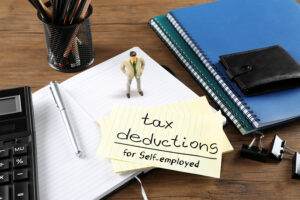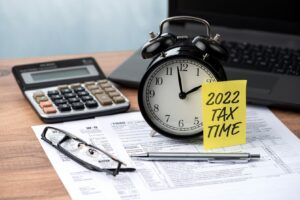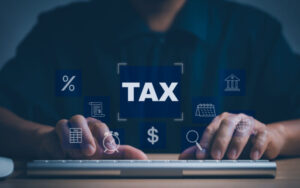If you’re a business owner, you might be wondering if using alternative energy technologies in your company can help you manage energy costs and improve your bottom line. If this sounds interesting, you should know there’s also a valuable federal income tax benefit that applies to the acquisition of many types of alternative energy property: the business energy credit.
The credit is intended primarily for business users. But be aware that other energy tax breaks apply if you use alternative energy in your home or if you produce energy for sale.
What property is eligible?
The business energy credit is equal to a portion of the cost of the following types of property (with the caveat that construction must begin before 2024):
- Equipment that uses solar energy to generate electricity for heating and cooling structures, for hot water, or for heat used in industrial or commercial processes (except for swimming pools),
- Equipment that uses solar energy to illuminate a structure inside using fiber-optic-distributed sunlight,
- Specific fuel-cell property,
- Certain small wind energy property,
- Specific waste energy property, and
- Certain offshore wind facilities with construction beginning before 2026.
If construction of equipment that uses solar energy to generate electricity for heating and cooling structures, for hot water, or for heat used in industrial or commercial processes begins this year, the credit rate is 26%. It’s reduced to 22% for construction beginning in calendar year 2023. And if the property isn’t placed in service before 2026, the credit is 10%.
For the other types of property mentioned above, if construction begins this year, the credit is also 26%. It’s also reduced to 22% for construction beginning in 2023. But if the property isn’t placed in service before 2026, the credit is 0%.
The only exception is the final type of property mentioned above, certain offshore wind facilities. This type of property isn’t subject to a phaseout.
The business energy credit is equal to 10% of the following types of property with construction beginning before 2024:
- Specific equipment that is used to produce, distribute, or use energy derived from a geothermal deposit,
- Certain cogeneration property,
- Some microturbine property, and
- Certain equipment that uses the ground, or ground water, to heat or cool a structure.
The downside and the upside
There are several restrictions related to the credit. For example, it isn’t available for property acquired with certain nonrecourse financing. Additionally, if the credit is allowable for property, the “basis” of that property is reduced by 50% of the allowable credit.
On the other hand, a favorable aspect is that, for the same property, the credit can sometimes be used in combination with other benefits. Examples include federal income tax expensing, state tax credits and utility rebates.
There are business considerations unrelated to the tax and nontax benefits that may influence your decision to use alternative energy. And even if you choose to use it, you might do so without owning the equipment, which would mean forgoing the business energy credit.
Still wondering?
As you can see, there are many issues to consider and you may have questions. We can help you work through the tax and other financial aspects of these alternative energy tax considerations.
A Tax Break For Educators Gets An Update
Teachers who are setting up their classrooms for a new school year often pay for some of their classroom supplies out-of-pocket. They can recoup some of that cost by taking advantage of a special tax break for educators. This deduction gained new importance after the 2017 passage of the Tax Cuts and Jobs Act (TCJA). For 2022, the deduction amount has increased for the first time since it was enacted.
The old-school way
Before 2018, employees who had unreimbursed out-of-pocket expenses could potentially deduct them if they were ordinary and necessary to the “business” of being an employee. A teacher’s out-of-pocket classroom expenses could qualify. Those expenses were claimed as a miscellaneous deduction, subject to a 2% of adjusted gross income (AGI) floor. That meant that only taxpayers who itemized deductions could enjoy a tax benefit, and then only to the extent that their deductions exceeded the 2% floor.
For 2018 through 2025, the TCJA has suspended miscellaneous itemized deductions subject to the 2% of AGI floor. Fortunately, qualifying educators can still deduct some unreimbursed out-of-pocket classroom costs using the educator expense deduction.
The new-school way
Back in 2002, Congress created the above-the-line educator expense deduction. An above-the-line deduction is one that’s subtracted from your gross income to determine your AGI. It can be claimed even by taxpayers who don’t itemize deductions. This is especially significant because, under the TCJA, the standard deduction has nearly doubled, which means that fewer taxpayers now itemize deductions.
For 2022, qualifying elementary and secondary school teachers and other eligible educators (such as counselors and principals) can deduct up to $300 of qualified expenses. This is up from $250 for 2021. Two married educators who file a joint tax return can deduct up to $600 of unreimbursed expenses, limited to $300 each.
Qualified expenses include amounts paid or incurred during the tax year for books, supplies, computer equipment, related software, services, and other equipment and materials used in classrooms. The cost of certain professional development courses may be deductible. Also, protective items to prevent the spread of COVID-19 such as hand sanitizers, disinfectant and other items recommended by the Centers for Disease Control for this purpose are also deductible. However, homeschooling supplies and nonathletic supplies for health or physical education courses aren’t deductible.
More details
Some additional rules apply to the educator expense deduction. If you’re an educator or you know one who might be interested in this tax break, please contact us for more details.







